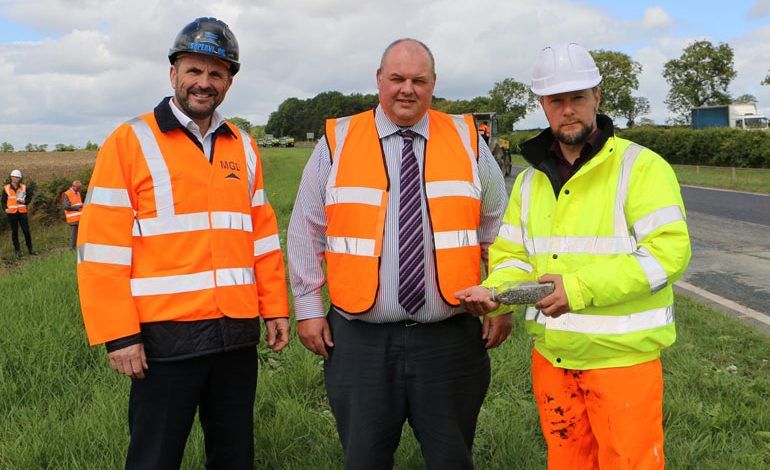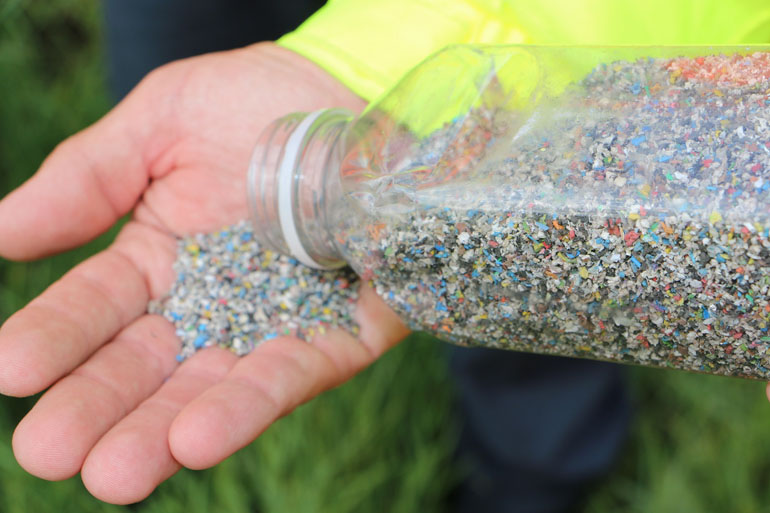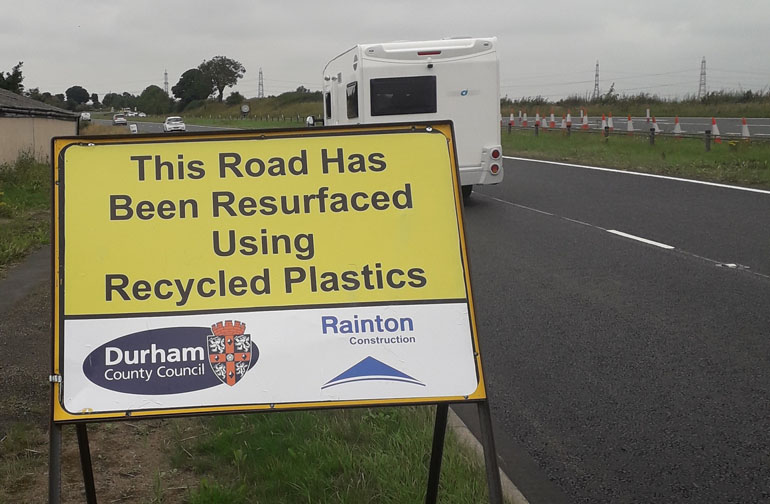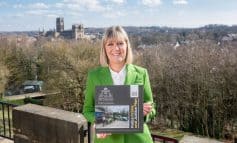Motorists on the A689 near Sedgefield in County Durham are now driving along a “plastic road”.
Durham County Council is the first local authority in the North East to try out a new technology as part of recently completed work to resurface a section of the A689 with hot rolled asphalt.
John Reed, the council’s head of technical services, said: “We have a continuous programme of resurfacing to maintain the condition of our road network.
“We’re always interested in any innovative technology that improves our roads and makes them more environmentally friendly.
“’In this trial, we incorporated waste plastics into the asphalt instead of traditional bitumen.
“This will help divert plastics that are difficult to recycle from incineration and landfill and reduce our carbon emissions.
“We are confident that this new technology will perform at least as well as the conventional method.”
Traditionally the surface of the county’s roads is made up of stone aggregates with a bitumen binder to hold the asphalt together.
The council’s surfacing contractor, Rainton Construction, sources the plastic from a Scottish company, MacRebur Limited. MacRebur has developed a process of turning waste packaging and insulation that wouldn’t normally be recycled into a plastic crumb which can be mixed into the asphalt.
This reduces the amount of new bitumen that is required and reduces the carbon footprint of road resurfacing by, on average, a tonne of carbon dioxide for every tonne of bitumen that would have been used.
In this scheme, the council used 6.5 tonnes of plastic which is the equivalent of 60,000 plastic shopping bags.
The company also claims that its system makes the road surface – which looks no different to a normal road – more durable and longer lasting.
David Wykes, MacRebur’s business development manager, said: “We have supplied our products to a number of local authorities in the UK and internationally but this resurfacing scheme in County Durham is the largest we have been involved with in England.
“The key thing about the polymers that we use is that they are difficult to recycle back in to their original forms, due to contamination with other plastics.
“However our products are able to use mixtures of these polymers, which can then be added to asphalts, helping to reduce carbon dioxide emissions, reduce the demands on fossil fuel bitumen and the amount of plastic that would usually be disposed of.”
Dave Elliott, managing director at Rainton Construction, said: “We are delighted to be working jointly with Durham County Council and MacRebur in this exciting and innovative approach to road surfacing. We look forward to rolling out the ‘plastic’ approach in other highway schemes in the coming years.”
Resurfacing of the A689 near Sedgefield took place between the Butterwick junction and the county boundary.
Anyone wanting to find out more about the plastic road scheme can watch a video at http://www.durham.gov.uk/article/19124/-Plastic-roads-trialled-in-County-Durham










